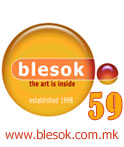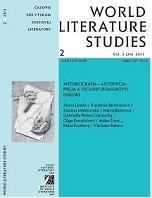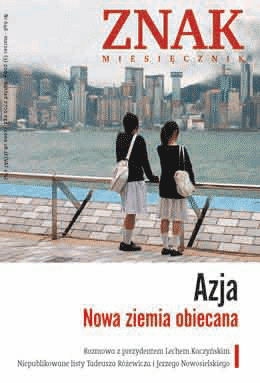We kindly inform you that, as long as the subject affiliation of our 300.000+ articles is in progress, you might get unsufficient or no results on your third level or second level search. In this case, please broaden your search criteria.



Non-institutionally transmitted supernatural and religious beliefs often occur in form of personal experience narratives (memorates). In general we could expect that personal memories should be unique, but these stories are often similar to other narratives known in the society and contain traditional motifs and elements. Interesting question is how the culturally spread beliefs can get into someone’s autobiographical memories? This paper presents findings based on author’s field research in rural area of northern Slovakia (Kysuce) and on cognitive theories of human memory. Psychological studies show that autobiographical memory is not passive information storage and recall device, but an active process of repeated construction of our personal past. During this process people incorporate scripts, concepts, audio-visual pictures, or whole episodes from their cultural and social environment into their personal past, without being aware of it. Author suggests that these psychological findings can be used to explain the formation of autobiographical memories containing traditional beliefs. Following his field material he claims that the tendency to incorporate narrative elements concerning supernatural beliefs from social environment, into personal experience memories, depends on two conditions: (1) emotional arousal connected with the experience, and (2) social context of similar stories heard by the person, that means: who in his social environment was the source and who was the object of similar personal experience stories of others.
More...
Nadežda Zemaníková: Búranie múrov; Helena ULBRECHTOVÁ: Ruská poezie druhé poloviny 20. století. Úvahy o teorii, literární historii a filozofii; Gunda Mairbäurl – Ernst Seibert (Hrsg.): Kindheit zwischen West und Ost : Kinderliteratur zwischen Kaltem Krieg und neuem Europa; Zuzana Malinovská: Puissances du romanesque. Regard extérieur sur quelques romans contemporains d’expression française; Jaroslav Stahl (Ed.): Translatologické reflexie 2010
More...
The article considers selected „autobiographical“ works by Dominik Tatarka and his fiction with autobiographical elements. As a typical modernist author, Tatarka focuses on the personal experience of the authorial subject. However, the writing is ambiguous and often contradictory in factual information. Comparisons with memoirs by his contemporaries (e.g., Eva Štolbová) clearly document Tatarka‘s strategic shift from autobiography to creative fiction. In thinking about „Autobiography-autofiction-fictional (novelistic) discourse“, what is at stake is not just the type of author or the type of theory that deals with the category of the author, but also the type of interpretation that the interpreter will accept and put to practice. We are dealing not only with a stereotypical distinction between post-structuralist and hermeneutic approaches of the interpreter, but with the finer differentiation of the multiple roles of the author. We are dealing with the relationship of the author – text, the text as the basis of the interpretation, as the platform of the author, as the mirror of the author (as fiction or as factual „data“), the text with an evident stamp of the author, autobiography as fiction (focus on the self – self-exhibition – brings with it a shift from own biography – in memories – to a desired image of oneself, a shift that is however difficult to identify).
More...
Pod názvom „Café Griensteidl“ sa dňa 23. marca 2011 konal v Mozartovej sieni Rakúskeho kultúrneho fóra; V dňoch 15.–17. marca 2011 sa v Moskve konala medzinárodná vedecká konferencia Súčasná slavistika a vedecké dedičstvo Samuila Borisoviča Bernštejna; V dňoch 15.–17. marca 2011 sa v Olomouci konalo 1. medzinárodné interdisciplinárne sympózium Umění a kultury střední Evropy. Cizinec – vyhnanec – přistěhovalec; 18. marca 2011 sa v Nitre konal medzinárodný vedecký seminár Tragédia doby – tragédia človeka 19. a 20. storočia a ich vplyv na (žánrovú) podstatu literatúry; Dňa 19. apríla 2011 sa v priestoroch Barbakanu na Michalskej ulici v Bratislave uskutočnil 20. ročník slávnostného vyhlasovania výsledkov čitateľskej ankety Kniha roka; 10. mája 2011 sa v Kongresovom centre Vydavateľstva Veda na Štefánikovej ulici v Bratislave konala prezentácia druhého zväzku Slovníka súčasného slovenského jazyka H – L; V dňoch 12.–14. mája 2011 sa v Prahe konalo výročné zhromaždenie Európskej rady asociácií umeleckých prekladateľov CEATL
More...
Hans Christian Andersen, a significant representative of the 19th century Danish literature, is one of the authors, who deliberately used autobiographical elements in their key works. Besides writing novels, plays and fairy-tales, he concurrently commented on his work and life, offering the reader a suggestive autofiction and daring self-inscenation in numerous autobiographical books of memoirs and travelogues. In Europe, they worked mostly as a very effective authorial marketing strategy, but also raise questions concerning his way of displaying personal qualities, dispositions and preferences (relationship to his mother, relationship to women, the supposed inclination toward homosexuality, etc.). The study discusses the topic on the basis of Andersen’s autobiographical works and in the context of the then Scandinavian and German literatures. The author relates to foreign, as well as domestic works focusing at H. Ch. Andersen (J. Andersen, N. Kofoed, N. Philip, S. Hakon Rossel, Z. Klátik, J. Kaňa, and others), and he critically outlines the complexity of the relationship between the image of self and fiction, the latter substituting reality, resp. unfulfilled life visions and dreams of the important author of the 19th century. The study also includes comparative analyses of autobiographical texts, diaries and letters (if available).
More...
The paper interprets “Obyčejný život”, a work by Karel Čapek in the context of late 20th century autobiography theories. Previous interpretations are more or less dominated by the so called noetic aspects, however, the autobiographical difficulties raised by the work, the impossibility of imagining life as narration, and facing the multi-facetedness of the self raise the possibility of employing autobiographical considerations. An interesting feature of the analysed work is that it includes an embedded story, an autobiographical text, which has a double structure: the first part includes a traditional autobiography that is a quasi-autobiography; the second part consists of the dismantlement, rethinking and re-evaluation of the first part. Therefore, I call the second part an anti-autobiography, its aim is to liberate the autobiographer from his illusions about the workings of an autobiography and to point at the failure of idealized preconceptions about life story narration. An anti-autobiography works as metaautobiography, and rewrites the relationship of the autobiography and the autobiographer, it intends to riddle the autobiographer’s myth about his/her own autobiographer: it points at the fact that the autobiographer works with a distorting memory instead of a precise one and employs metaphorical narration instead of metonymical, presents only life fragments instead of a whole life story and instead of a homogeneous self it presents a multiple, heterogeneous subject.
More...
The current study consists of four parts. It opens with a brief survey of the term authentic and with a specific delimitation of the concept with regard to the contemporary literature. In the second part, the study shows the mode of the writing of Tereza Boučková which presents itself/is presented as “authentic”. The third part examines the ways in which the characters and embedded journalistic texts in the novel The Year of the Rooster (2008) interact with their emblematic counterparts. The fourth part brings a conclusion, stating that the characters and journalistic texts in the novel present an emotional “over-writing” of the publicly shared emblems – a practice which paradoxically does have its effect on the emblems itself.
More...
Narratives are generally conceived as accounts of events, which involve some temporal and/or causal coherence. Recently, a new direction of narrative psychology has emerged, which draws on the scientific traditions of psychological study, but adds to the existing theories by pursuing the empirical study of psychological meaning construction (László, 2008). Scientific narrative psychology takes seriously the interrelations between language and human psychological processes or narrative and identity. This is what discriminates it from earlier psychometric studies, which established correlations between language use and psychological states (Pennebaker and King 1999; Pennebaker et al. 2003). It assumes that studying narratives as vehicles of complex psychological contents leads to empirically based knowledge about human social adaptation. Individuals in their life stories, just like groups in their group histories, compose their significant life episodes. In this composition, which is meaning construction in itself, they express the ways in which they organize their relations to the social world, or construct their identity. Organizational characters and experiential qualities of these stories tell about the potential behavioral adaptation and the coping capacities of the storytellers.
More...
The paper deal with the “autofiction” as one of the means of the self-writing in contemporary Québec fiction. The “autofiction” is considered in both Québec and French sociopolitical and literary contexts. While being frequently used, especially in francophone environment, the notion stays vague, referring to the common practice of transgressing the boundaries between the real and literary worlds, resulting in a fictional account of one’s own life and the blending of fiction and faction. The genre, having also cognitive and therapeutic functions, enables authors to reflect upon and to render the questions of being and writing. The means by which contemporary authors explore the realm of the “aufofiction”, as well as its manifestations in the novel are analyzed on the example of novels written by Régine Robin and Nelly Arcan.
More...
In the 2nd half of the 20th century, in the Russian literary studies the phenomena of the rise of autobiographal writing lead to the renaissance of scholarly interest in genres marked today as autobiographical. The works of L. Ginzburg, J. Lotman and A. G. Tatarkovsky from the 1970 - 1980 offer inspirative sources for today research. Intensive interest of the Russian literary studies in autobiographical genres, in many ways depending on increased reflection of theoretical works of western researchers, is symptomatic mainly for the last two decades. It is clearly reflected in the amount of published studies in scholarly journals and miscellanies, as well as a number of monographs; as an example the book of O. G. Egorov (2003) can be mentioned, which brings a compendious view on diaries of writers and artists in the 19th century, and at the same time offers a complex typology of material presented from various viewpoints (from the point of view of traditional categories of literary studies, analytical psychology and other), or the book of E. E. Prikazchikova (2006) providing orientation in the rich and heterogenous material of the given period and predominantly focused on the question of genre evolution and contextual determinants of the analysed texts; the monograph of I. Savkina (2007) devoted to women´s autobiographical texts reflected in a wide context of theoretical concepts of gender studies, and theories of autobiographism, predominantly of western researchers, etc.
More...
An early drama written in 1895 of Dezső Szomory , is published for the first time.
More...